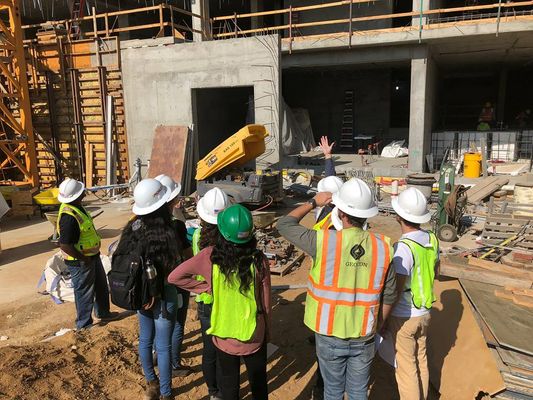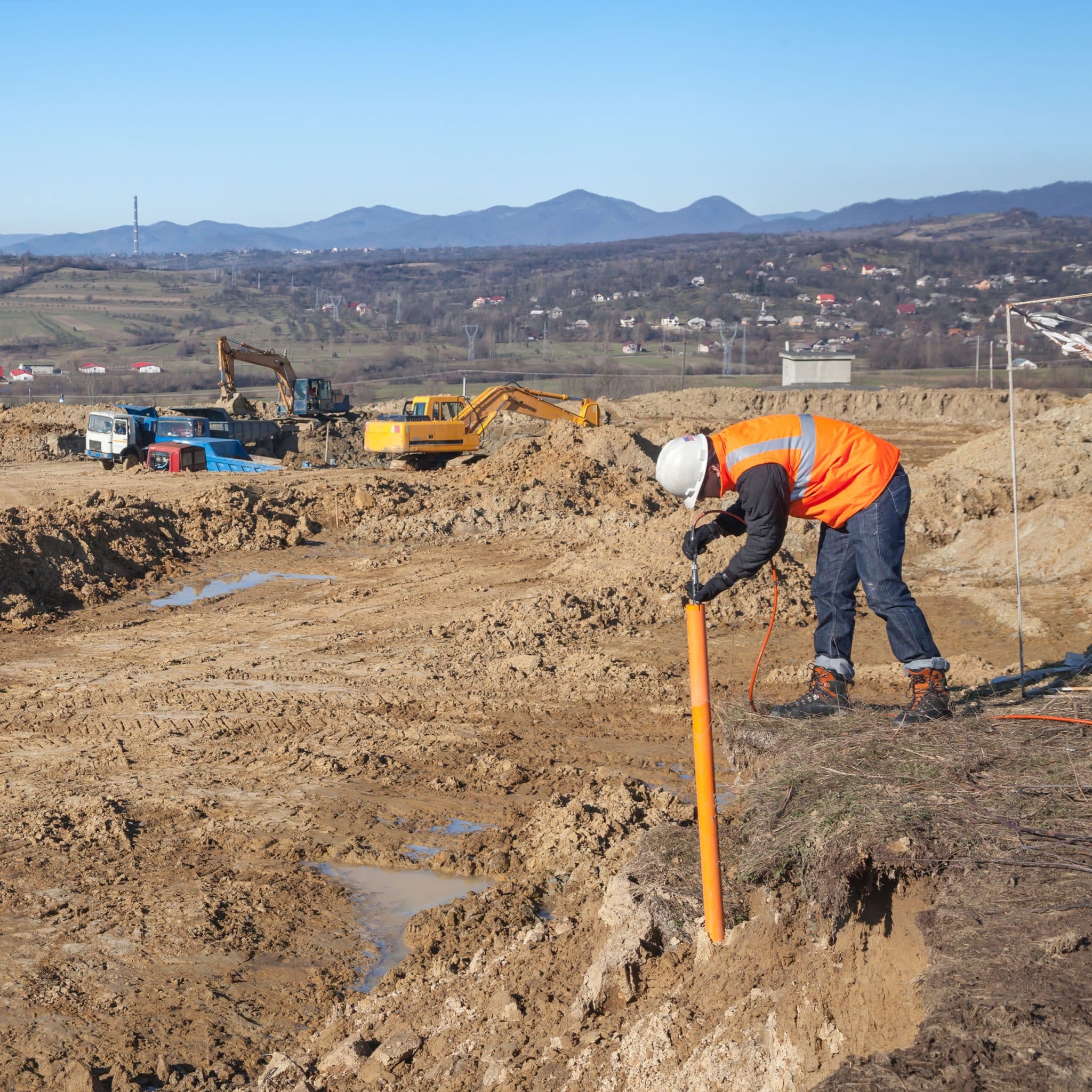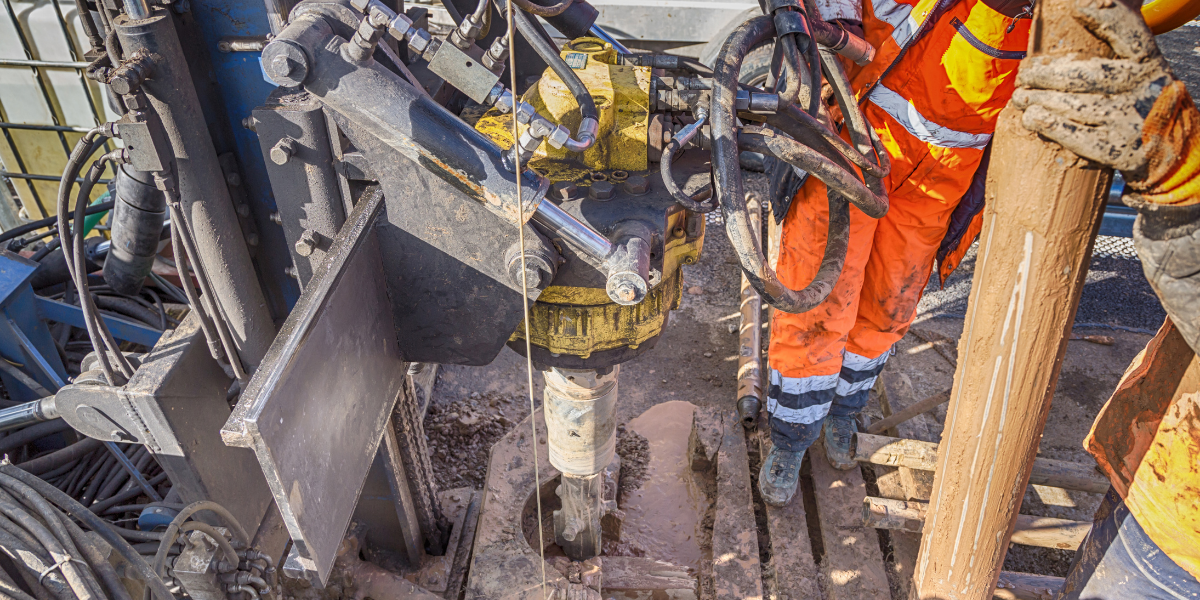Navigating the Complexities of Geotechnical Eng Projects
Navigating the Complexities of Geotechnical Eng Projects
Blog Article
A Thorough Overview of the Secret Obligations of Geotechnical Engineers in Site Characterization and Ground Enhancement Strategies for Engineering Solutions
Geotechnical engineers are integral to the effective implementation of engineering jobs, charged with the vital responsibilities of site characterization and the application of ground enhancement techniques. Their job entails a detailed analysis of subsurface problems, employing various testing methods to recognize soil and rock residential or commercial properties.
Duty of Geotechnical Designers
Geotechnical designers play a critical function in the layout and building and construction of framework by analyzing the actions of dirt and rock underneath the surface area - geotech engineer. Their duties include examining subsurface problems to inform layout decisions that make sure structural stability and security. By carrying out detailed analyses of dirt residential properties, including shear compressibility, leaks in the structure, and strength, geotechnical engineers provide important information that affects the choice of appropriate building materials and techniques
In enhancement to analyzing dirt technicians, geotechnical engineers are tasked with identifying possible risks such as landslides, sinkholes, and ground negotiations. Their knowledge helps minimize threats connected with these geotechnical sensations, thus securing both the atmosphere and public safety. They also collaborate very closely with various other engineering self-controls, making certain that geotechnical factors to consider are integrated right into overall job style.
Furthermore, geotechnical designers take part in the analysis of existing frameworks, offering recommendations for retrofitting and repair services when necessary. Their thorough understanding of soil-structure interaction is vital for the development of lasting framework options. Overall, the function of geotechnical engineers is integral to the successful understanding of building and construction jobs, guaranteeing they are safe, resilient, and certified with regulatory requirements.

Website Characterization Processes
Reliable site characterization processes are crucial for comprehending the subsurface problems that influence task style and implementation. Geotechnical designers employ a systematic technique to collect, examine, and analyze information regarding rock, soil, and groundwater features. This process begins with a comprehensive evaluation of existing literary works and archaeological site information, supplying understandings into previous site problems and prospective challenges.

Information evaluation complies with fieldwork, where designers use geostatistical approaches to analyze searchings for and develop geological models. Via thorough site characterization, geotechnical designers lay the groundwork for successful job execution, enhancing and decreasing unpredicted issues resource allocation.
Dirt and Rock Testing Methods
While recognizing subsurface conditions is vital, the selection of appropriate dirt and rock testing methods is equally essential for exact analysis and style. Geotechnical engineers use a range of testing techniques to review the mechanical and physical properties of soil and rock products.
Lab tests, such as Atterberg restrictions, grain dimension evaluation, and unconfined compressive stamina tests, supply crucial data on dirt habits under different wetness problems and loading situations. These tests assist determine dirt category and predict settlement or shear stamina features important for foundation style.
In-situ screening approaches, including Requirement Infiltration Examinations (SPT), Cone Penetration Tests (CPT), and pressure meter tests, allow engineers to gather data straight from the ground. These methods use valuable insights into the soil's density, uniformity, and stratification without the need for comprehensive sampling.
Rock testing commonly involves core sampling and research laboratory analysis to examine residential or commercial properties like uniaxial compressive strength and rock high quality classification (RQD) Together, these dirt and rock screening approaches make it possible for geotechnical engineers to make enlightened decisions relating to site-specific obstacles, guaranteeing the safety and stability of design options.
Ground Enhancement Methods
Ground renovation strategies are vital for enhancing the engineering homes of dirt, consequently enhancing its load-bearing capacity and reducing negotiation. These techniques are important in addressing difficulties presented by troublesome or weak soils, which can dramatically affect the stability and sturdiness of structures.
Various ground improvement methods are employed, consisting of compaction, grouting, and dirt stablizing. Grouting, on the various other hand, entails infusing a fluid material into the ground to load gaps and improve dirt communication.
Dirt stabilization encompasses a series of methods, from chemical ingredients to mechanical treatments, targeted at improving the Clicking Here soil's resistance to disintegration and deformation. Methods such as lime stablizing or cement mixing modify the homes of the dirt at a fragment degree, improving its overall efficiency.
Importance of Geotechnical Evaluations
Geotechnical analyses play an essential role in the planning and style of design projects, as they offer necessary details concerning the subsurface conditions. Comprehending dirt properties, rock developments, groundwater degrees, and potential geohazards is important for ensuring the security and safety of structures. These evaluations enable engineers to make informed choices concerning website choice, design specifications, and construction techniques.
The importance of geotechnical analyses extends past initial task stages; they are critical in danger administration and cost efficiency. By identifying prospective issues early, such as soil negotiation, incline instability, or too much groundwater, engineers can create ideal mitigation techniques, reducing the chance of pricey delays and architectural failures. These analyses support compliance with regulatory requirements and improve the sustainability of design practices.

Verdict
In verdict, geotechnical engineers are vital to guaranteeing the security and stability of engineering projects through extensive website characterization and ground renovation techniques. geo tech engineering. Their systematic approach to evaluating subsurface problems, integrated with their referrals for efficient ground adjustment, substantially improves soil residential properties and load-bearing capability. The experience of geotechnical designers not just helps with educated job planning yet also makes certain conformity with policies click reference and cultivates effective interaction among stakeholders, eventually adding to effective design outcomes
Geotechnical engineers play an essential function in the style and construction of facilities by analyzing the behavior of soil and rock below the surface. try this web-site By performing thorough evaluations of dirt residential properties, consisting of shear compressibility, stamina, and leaks in the structure, geotechnical engineers supply critical information that influences the option of appropriate construction products and techniques.
In enhancement to assessing soil technicians, geotechnical designers are charged with recognizing prospective threats such as landslides, sinkholes, and ground negotiations. Geotechnical designers utilize a methodical method to collect, assess, and translate information relating to rock, dirt, and groundwater qualities. By identifying possible issues early, such as dirt negotiation, slope instability, or too much groundwater, engineers can develop appropriate reduction techniques, decreasing the chance of expensive hold-ups and architectural failures.
Report this page